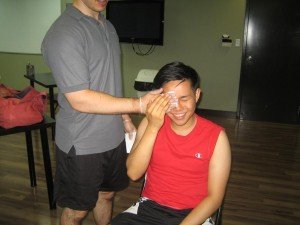Migraines are alleged to be due to a combination of environmental and genetic influences. It is characterized by moderate to severe recurrent headaches. Physical activities can make the pain worse. The changing of hormone levels may affect migraines. It is usually common among women than men.
Things that can trigger migraine:
- Stress – While working or studying stress can be experience by anyone else that can lead to migraine.
- Exposure to light – Bright lights can often induce migraines.
- Hormonal changes among women – Fluctuations in estrogen seem to generate headaches among women.
- Weather condition – alteration of weather or barometric pressure can prompt a migraine.
- Sleeping patterns – Too much or lack of sleep can cause migraines.
- Food additives – It can be seen commonly from sweetener or preservatives.
- Medications – Oral contraceptives can intensify migraines.
Aside from these factors, there are also foods that can trigger migraines. Avocados, beans, chocolates, cocoa, papaya, peanut butter, soy sauce, raisins and processed meat are just some of the foods that can cause you migraines.
You can experience migraine often during childhood, or early adulthood. It can go through four stages:

- Prodrome
- Aura
- Headache
- Post-drome
Symptoms of Migraine
- Severe pain
- Increasing pain during physical activities
- Sensitivity to light and sound
- Feeling sick and weak
- Pain on either side of the head
- Muscle weakness
Other symptom commonly linked with migraine includes nausea, vomiting and hypersensitivity. Some may also experience sweating, abdominal pain or poor concentration. Some may experience migraine without having headache. The symptoms may last for four hours up to three days.
Risk factors
Some factors that can give you reasons to be prone to migraines are the following:
- Family history. You have the chance of developing migraines too, if you have a family member having it.
- Often occurs during adolescence.
- Hormonal change. For women, headaches begin just before or shortly after menstruation.
Several experience migraine attacks during pregnancy. It generally improves after menstruation and often thru postpartum period.
Medications
Medications such as naproxen, ibuprofen, paracetamol and other analgesics are unsuccessful therapies to remove headache or reduces pain. Take painkillers early than to allow the development of headache.
Home remedies
These can help ease migraines.
- Have a muscle relaxation exercise.
- Have enough sleep.
- Rest and relax.
Prevention to Migraines
We can prevent migraines by avoiding triggers, controlling indicators and taking medicines.
- Get enough sleep
- Regular exercise
- Drink plenty of water
- Avoiding certain food that can trigger migraine
